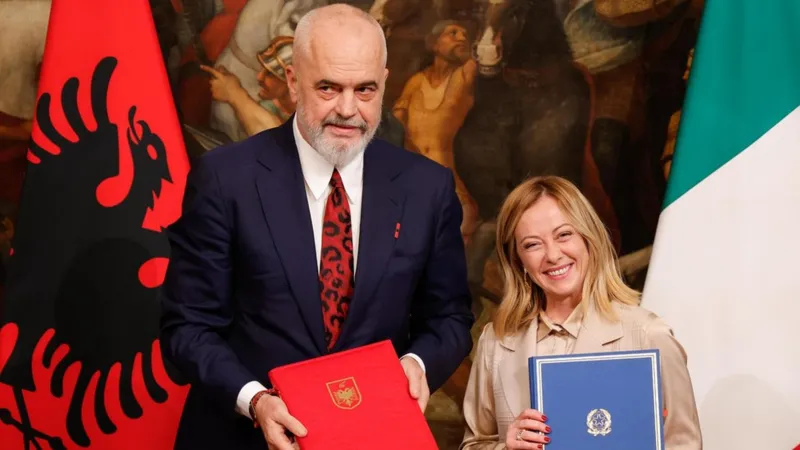The Italian-Albanian agreement to process asylum applications in Albania has raised serious concerns about its legal and human rights implications. The deal, designed to manage migration more efficiently, has sparked debates across Europe.
In the small village of Gjader, located near the Adriatic Sea in northwestern Albania, the establishment of a migrant camp brought initial changes to the community. The camp, set up near a renovated airbase, offered economic opportunities to locals. Italian staff rented homes, creating a temporary boost for the village’s economy. For a brief period, the initiative seemed to benefit both the community and the migrants.
However, the project quickly encountered legal obstacles. Italy’s decision to outsource asylum processing to Albania faced strong opposition, with critics arguing that it could lead to human rights violations. The controversy escalated to European courts, where concerns were raised about the legality and ethicality of processing asylum claims outside of Italy.
The first group of migrants, who arrived in Gjader on October 16, was soon sent back after Italian courts intervened. A second group, returned in November, further highlighted the project’s difficulties. As legal challenges mounted, Italian staff began leaving the camp, signaling the collapse of the initiative.
The sudden withdrawal of Italian personnel left Gjader’s migrant camp abandoned, ending what many had hoped would be a model for migration management. The failure of the project has drawn attention to the complexities of balancing migration policies with international legal and human rights standards.
This development underscores the challenges faced by European nations in managing migration. While innovative approaches are often proposed to address growing migration pressures, they must align with legal obligations and respect human dignity. The Italian-Albanian deal serves as a reminder of the difficulties in implementing such strategies without infringing on fundamental rights.
The collapse of the initiative has left many questioning the future of similar agreements. As migration remains a pressing issue in Europe, policymakers will need to find solutions that are both effective and ethical, ensuring that human rights remain at the forefront of their efforts.

